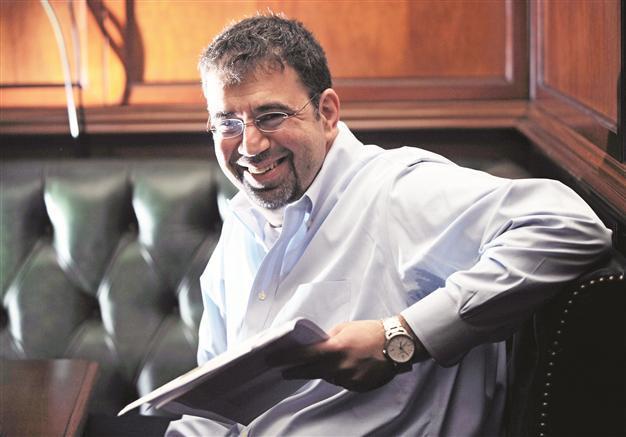'Turkish economy at high risk, but not due to Gezi protests,' MIT economist says
Güneş Kömürcüler ISTANBUL - Hürriyet Daily News

The economy is at risk but this is not because of rallies, Daron Acemoğlu says. DAILY NEWS photo, Emrah GÜREL
The latest decision of the American Federal Reserve (FED) to end its asset purchases in 2014 has affected all developing markets, and particularly the Turkish economy, according to renowned MIT economist Daron Acemoğlu.
“The Turkish economy is at greater risk right now, but this is not about the countrywide
protests,” Acemoğlu, a Turkish-American economist of Armenian descent, told a small group journalists on June 22, before giving a speech at Istanbul's Bilgi University.
“The FED’s latest decision to end the liquidity party had been expected for a long time, and is not surprising. The expected move has affected many emerging and developing economies negatively for more than three weeks. The Turkish economy, however, has been affected most due to its structural weaknesses, particularly its high current account deficit,” he said.
Acemoğlu added that the Turkish economy could see a “sudden stop” of hot money inflow in the worst scenario, as happened in 2001, but these risks were not about the countrywide protests and could be prevented by the Turkish government through a series of sensible political and economic moves.
“If the Turkish government chooses to adopt a moderate voice against the protests, the negative outlook could be recovered both locally and internationally,” he said, adding that Turkey should end its dependence on hot money flow as soon as possible.
“Turkey needs to make comprehensive reforms in its judicial system, public procurement contracts law and to reduce red tape to attract more foreign direct investment. There is also another very crucial point here: The close relations between the state and the economic actors need to be reduced,” Acemoğlu stressed.
He gave an example from the American economy. “Mark Zuckerberg met an American politician for the first time six years after he had established Facebook. In Turkey, however, it is nearly impossible to make big business projects without having close relations with the political figures,” he pointed out.
‘I wish I were in Turkey during protests’ Acemoğlu, who studied with James Robinson the connection between economic development and democratic rule in "Why Nations Fail," said he had followed the protests very closely and found them "very promising" on the path to the establishment of a healthy and functioning democracy. “I wish I were here and I would attend the protests as the most basic element of a healthy democracy is the high participation of the people in the political life,” he said.
Acemoğlu also said the Erdoğan government had done many good things, mainly to end military dominance and to make the economy more liberal in Turkey. “To me, Turkey is in much better situation than it was 15-16 years ago. The Turkish government, however, should continue its sensible political and economic reforms, which have been slowed down for the last years.”
